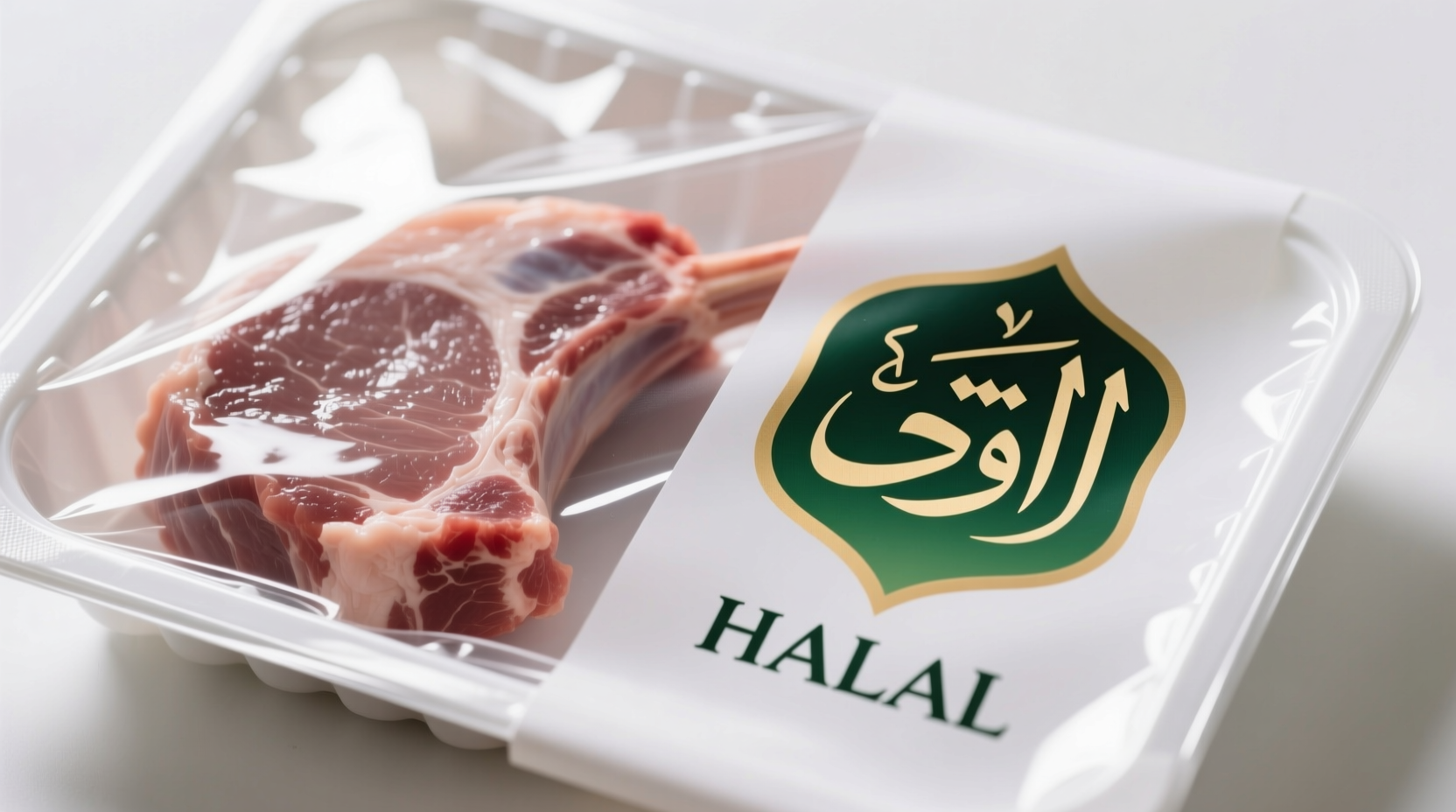Understanding Halal: More Than Just Meat Preparation
When exploring what does halal mean in food, it's essential to recognize that halal encompasses far more than just meat preparation. The concept permeates every aspect of food consumption for observant Muslims. Halal guidelines prohibit pork and its derivatives, alcohol, blood, and any food contaminated with these substances. Additionally, animals must be healthy at the time of slaughter, and the process must minimize suffering.
The religious foundation for halal food comes from the Quran, specifically Surah Al-Ma'idah (5:3-5), which clearly outlines permissible and prohibited foods. Islamic scholars have developed detailed interpretations over centuries to address modern food production challenges while maintaining religious integrity.
Halal Certification: Ensuring Compliance in Modern Food Systems
As global food supply chains have become increasingly complex, halal certification has evolved into a sophisticated verification process. Reputable certification bodies like the Islamic Food and Nutrition Council of America (IFANCA) and the Halal Food Authority (HFA) in the UK provide standardized verification that food products meet Islamic requirements.
| Certification Stage | Key Requirements | Verification Method |
|---|---|---|
| Ingredient Review | All components must be halal-compliant | Documentation review and laboratory testing |
| Production Process | Equipment must be dedicated or properly sanitized | On-site inspections and process verification |
| Slaughtering Protocol | Trained Muslim slaughterer, proper invocation | Direct observation and monitoring systems |
| Storage & Transportation | Separation from non-halal products | Logistics verification and container checks |
This structured approach ensures that halal food maintains its integrity from farm to table. The certification process has evolved significantly since the 1970s when formal halal certification began emerging to address the needs of Muslim communities in non-Muslim majority countries.
Halal Food Requirements: Practical Guidelines for Consumers
For consumers wondering what does halal mean in food terms they can recognize, several practical guidelines apply. Look for official halal certification logos from recognized authorities on packaging. In restaurants, ask whether they maintain separate preparation areas and utensils for halal food to prevent cross-contamination with prohibited substances.
When examining meat products, halal certification ensures that:
- The animal was alive and healthy at slaughter
- A Muslim performed the slaughter while invoking Allah's name
- The slaughter involved a swift cut across the throat to minimize suffering
- Blood was properly drained from the carcass
- No prohibited substances were used in processing
It's important to understand that halal guidelines extend beyond meat. Processed foods containing gelatin, enzymes, or flavorings require verification, as these often derive from animal sources. Even non-food items like cosmetics and pharmaceuticals follow similar halal principles for observant Muslims.
Halal vs. Kosher: Understanding the Key Differences
While both halal and kosher dietary systems share some similarities as religious food guidelines, important distinctions exist. The most significant difference lies in slaughter practices and the scope of prohibited substances.
Halal requires that each animal be slaughtered individually with a specific invocation, while kosher slaughter (shechita) allows for a single blessing to cover multiple animals. Additionally, halal prohibits all alcohol consumption, whereas kosher guidelines permit certain alcoholic beverages like wine when properly certified.
Another key difference involves the treatment of blood. Both systems require blood removal, but halal mandates complete drainage through the natural slaughter process, while kosher requires additional salting and soaking of meat to remove residual blood.

Navigating Halal Food in Different Contexts
Understanding what does halal mean in food requires recognizing how interpretation varies across different Muslim communities. While core principles remain consistent, certain contextual boundaries affect application:
- Geographical differences: Muslim-majority countries often have national halal standards, while minority communities rely on third-party certification
- School of thought: Different Islamic traditions (Hanafi, Shafi'i, etc.) may have nuanced interpretations of certain guidelines
- Modern food technology: New processes like mechanical slaughter require special consideration and approval
- Emergency situations: Islamic jurisprudence permits consuming otherwise prohibited food when facing starvation
These contextual boundaries help explain why halal practices might appear differently across regions while maintaining core religious principles. The European Council for Fatwa and Research has issued detailed guidance on applying traditional halal principles to contemporary food production methods.
Common Misconceptions About Halal Food
Several persistent myths surround halal food practices. One common misconception is that halal slaughter is inhumane. Scientific studies, including research published in the journal Animal Welfare, have shown that proper halal slaughter without stunning can be as humane as other methods when performed correctly by trained individuals.
Another myth suggests halal certification imposes religious requirements on non-Muslim businesses. In reality, halal certification simply verifies that products meet specific production standards that happen to align with Islamic requirements—similar to kosher or organic certification.
Understanding what does halal mean in food requires separating factual religious requirements from common misunderstandings. The halal food industry operates within standard food safety regulations while adding specific religious compliance measures.
Practical Tips for Identifying Authentic Halal Food
For those seeking halal food options, several practical strategies can help ensure compliance:
- Look for certification from recognized authorities rather than generic "halal" claims
- Ask restaurants about their halal sourcing and preparation protocols
- Check ingredient lists for hidden non-halal components like alcohol-based flavorings
- When in doubt, contact certification bodies to verify questionable products
- Understand that "alcohol-free" doesn't automatically mean halal, as other factors apply
As the global halal food market continues to grow, estimated at over $2.1 trillion worldwide according to the State of the Global Islamic Economy Report, more mainstream food producers are obtaining halal certification to serve diverse consumer needs while maintaining religious compliance.











 浙公网安备
33010002000092号
浙公网安备
33010002000092号 浙B2-20120091-4
浙B2-20120091-4